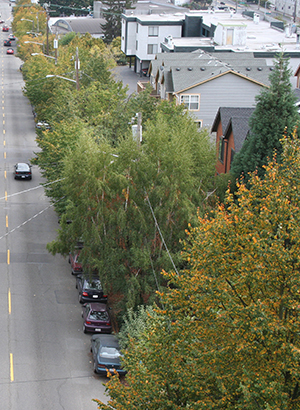
Green New Deal Oversight Board to present budget 2022 and 2023/24 budget recommendations in early June.
On April 18th, the Green New Deal Oversight Board held a public listening session to create a space for community input, build connections, and inform future priorities of the Green New Deal. The Green New Deal Oversight Board is comprised of 19 members who work to connect frontline community led voices and the Seattle city government to eliminate Seattle’s climate pollution by 2030, while resolving racial, social, and economic inequities.
The primary goals of the Green New Deal are:
- Address the Climate Crisis and Environmental Injustice: reduce climate pollution and climate adaptation
- Build an Inclusive Low-Carbon Economy: workforce development, contracting, and community wealth building
- Promote Community Health and Well-being: reduce climate related health disparities
- and foster resiliency
At the listening session, attendees were broken up into 8 small groups facilitated by Oversight Board members with notes captured by OSE staff. Each small group worked through the following set of questions:
- Imagine it is 2030 Seattle is pollution free what lead us here? Share your idea in a headline form.
- Do you know of an existing or new idea of a project, program, policy, that aligns with the
following Green New Deal priority area? - Are there existing city programs or projects that you would like to see more of in your
community? (Examples: Broader opportunities to sign up for the Utility Discount Program, more
access to home weatherization rebates, or more environmental education programs in schools) - What are existing education programs, early career services, or entry level positions in the
climate and environmental sector? How could access to these programs be expanded? What
programs could be created in this space? - Of the ideas shared what things would you do immediately and what things would come later?
Breakout Group Discussion Themes
- Decrease our reliance on fossil fueled vehicles
- Develop programs and incentives for people with low incomes to access EVs such as a community car share program
- More public transit electrification
- Subsidize energy transition for community members with low incomes
- Decrease our reliance on fossil fuels in buildings
- Scale up our oil to electric home heating program and include gas
- Support more solar energy generation
- Expand weatherization programs for residential buildings
- Close the financial gap between developing affordable and low income housing & green building
- Subsidize energy transition for community members with low incomes
- Invest in youth and community education efforts
- Invest in community based organizations to provide critical education and technical assistance to community members who are eligible for incentives and assistance programs
- Invest in education for young people
- Environmental and climate justice curriculum in schools
- Develop a youth workforce training & education center
- Ensure that workforce development strategies are developed as part of climate policy development
- Invest in pathways into apprenticeships to meet the workforce demand
- Invest in ways that connect youth into career pathways that are a part of decarbonization and climate adaptation efforts
- Support accessible avenues for community land ownership
- Develop creative ways to bring people together to foster community building, community cohesion and relationship building while raising awareness around climate change and inspiring collective action & solutions development